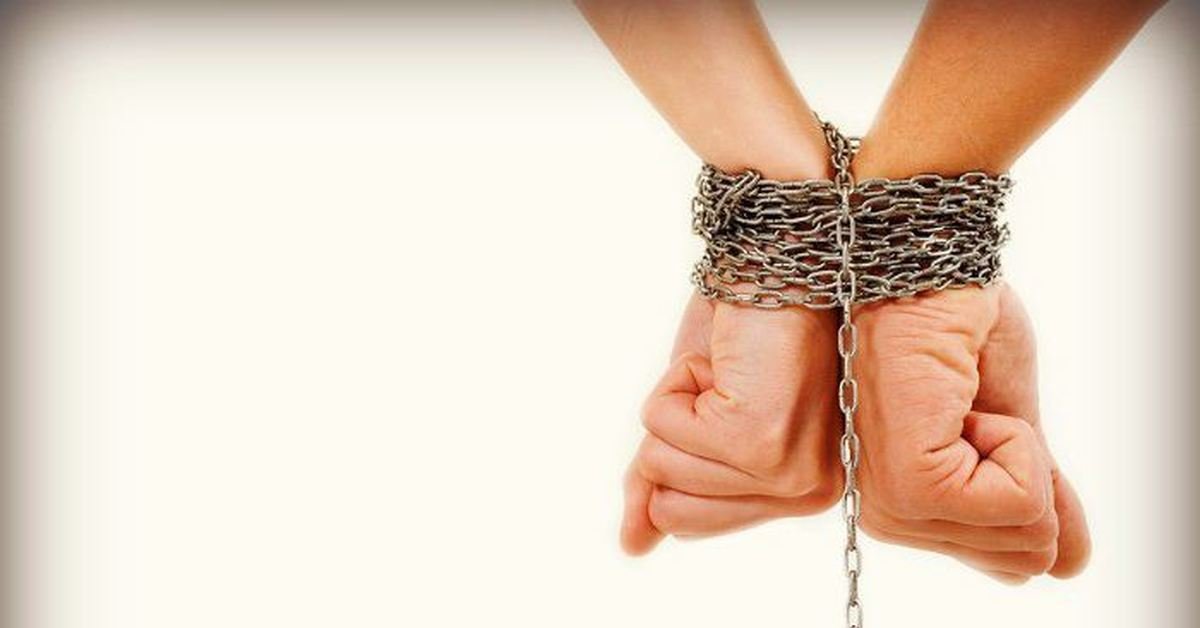Созависимость стала модным словом в нашем обществе, родом из области зависимости. В области психологии остается неясным, каковы симптомы созависимых отношений, как их определить, откуда они происходят и что вы можете с этим сделать.
Читайте дальше, чтобы узнать больше о созависимости и узнать 10 признаков того, что вы находитесь в созависимых отношениях, и что вы можете с этим сделать.
Что такое созависимость?
Исследования пытались количественно оценить, классифицировать и определить созависимость, поскольку, похоже, она пронизывает очень много различных типов отношений и многих людей по всему миру. Однако, поскольку четкое определение перестает существовать, трудно получить точное количество людей, которые борются с ним.
Такие организации, как анонимные созависимые, указывают на созависимость как «болезнь» и предоставляют безопасное место для тех, кто борется в своих отношениях. Однако они дают понять, что не предоставляют четкого определения или диагностических критериев для выявления созависимости. Общий знаменатель, по-видимому, состоит в том, что те, кто идентифицирует себя как «созависимые», часто происходят из неблагополучной семьи и демонстрируют характеристики «усвоенной беспомощности».
10 признаков того, что вы находитесь в созависимых отношениях
Если нет четкого определения, как узнать, состоите ли вы в созависимых отношениях? Созависимость можно определить, оценив свое собственное поведение, а не поведение человека, с которым вы состоите в отношениях. Выявив определенные мысли, чувства и поступки, которыми вы склонны заниматься, вы можете начать определять любые тенденции, которые проявляют созависимые характеристики.
Вот 10 признаков того, что у вас могут быть созависимые отношения.
1. Трудно сказать «нет»
Созависимым сложно сказать «нет» в своих отношениях. Они часто боятся быть отвергнутыми или брошенными, поэтому говорят своим партнерам «да», потому что у них нет уверенности сказать «нет». Это может проявляться во всех сферах отношений, будь то финансовые решения, совместное воспитание детей, определение задач или сексуальная близость. Созависимые по умолчанию будут «ходить по всему телу» или «бульдозером» со стороны своего партнера и не будут иметь возможности наделить полномочиями или заявить о себе.
2. Вы обнаруживаете, что делаете то, чего не хотите.
Созависимые боятся, что их партнер бросит их. В конечном итоге они делают то, чего не хотят, просто чтобы не дать своему партнеру уйти. Они отчаянно нуждаются в одобрении, внимании и принятии со стороны своего партнера и готовы на все, чтобы не поставить под угрозу его уход от них. Им не хватает способности к самооценке. Они ставят мнения и суждения своего партнера выше собственных убеждений о себе. Это может привести к тому, что созависимые компрометируют личную мораль и ценности, чтобы получить одобрение контролирующего партнера.
3. Вы чувствуете себя обязанным помочь своему партнеру решать проблемы и быть нужными
Нужны созависимые. Вся их самооценка зависит от того, насколько ценен их партнер по отношениям. Если они могут быть полезны, то их ценят. Созависимые часто уступают больше, чем ожидалось, и пытаются быть «полезными» и решать проблемы своего партнера. В конечном итоге они заботятся о жизни своего партнера больше, чем его партнер. Это приводит к тому, что их партнер осуждает их еще больше, потому что созависимые будут стараться изо всех сил, если они проиграют.
4. Вы думаете и чувствуете ответственность за другого человека.
Когда созависимые пытаются решить проблемы своего партнера, они берут на себя ответственность за его жизнь. Это приводит к чувству ответственности за все, что происходит или не происходит с их партнером. Эта чрезмерная вовлеченность освобождает их партнера от ответственности за свою жизнь и возлагает вину исключительно на созависимых за все, что происходит. Принятие на себя ответственности за то, что вы не в силах изменить, увековечивает цикл созависимости, создавая ощущение, что «если бы я мог просто делать больше или делать это лучше, мой партнер меня полюбит».
5. Вы склонны предвидеть потребности своего партнера и чрезмерно жертвовать
Созависимые, которые берут на себя ответственность за жизнь своего партнера, должны постоянно быть начеку. Они должны предвидеть потребности своего партнера, прежде чем его партнер сможет что-либо попросить. Это приводит к чрезмерной бдительности и гиперреакции по отношению к партнеру. Это вызывает негодование со стороны партнера, который постоянно находится под пристальным вниманием, что часто приводит к отказу от отношений.
6. Вы стремитесь доставить удовольствие своему партнеру перед собой.
Созависимые мало думают о себе и своих нуждах. Когда потребности партнера постоянно ставятся выше собственных, единственный источник одобрения — это угождать партнеру. Часто созависимые не осознают, чего они на самом деле хотят и что чувствуют, потому что большая часть их жизни сосредоточена на ком-то, кроме них самих. Таким образом, нет никакой пользы в том, чтобы доставлять себе удовольствие. На самом деле они чувствуют себя эгоистичными или тратят время, которое, по их мнению, следует потратить на своего партнера.
7. Вы чувствуете, что события и ситуации в ваших отношениях находятся под контролем.
Если потребности созависимого партнера не удовлетворяются, созависимый часто будет контролироваться своим партнером с использованием тактик принуждения, советов или манипуляций, направленных на то, чтобы вызвать чувство беспомощности и вины у созависимого. Таким образом, роль созависимого контролируется их партнером, а зависимость усиливается.
8. Вы отчаянно ищете любви и одобрения своего партнера.
Основные потребности в общении и одобрении, когда они не удовлетворены в детстве, переходят во взрослые отношения с убеждением, что «если мой партнер дает мне любовь и одобрение, тогда и только тогда я в порядке». Это ложное убеждение создает ситуацию, когда человек передает свою власть партнеру.
Они не верят в собственную оценку себя и собственной ценности. Они не доверяют своим чувствам и не умеют делать правильный выбор. Это позволяет партнеру принимать решения, но не брать на себя ответственность за результат этих решений.
Например, если их партнер говорит им бросить работу, прекратить дружбу или прекратить заниматься хобби, это не повлияет на жизнь партнера, но жизнь созависимого человека станет меньше и менее удовлетворительной. Это увековечивает цикл, потому что теперь созависимым нужно меньше сосредотачиваться и уделять больше внимания и энергии своему партнеру, который становится единственным, что у них осталось в их мире. Это усиливает отчаяние, пытаясь еще больше убедиться, что партнер дает им одобрение. Это также создает искаженное представление о том, что никто больше никогда их не полюбит.
9. Вы притворяетесь, что обстоятельства не так плохи, как они есть.
Когда человек больше не верит своим чувствам и полагается на мнение своего партнера, он больше не может доверять своим собственным взглядам и опыту. Они считают, что проблема в них самих, и что если дела идут плохо, они являются причиной того, что это так. Они минимизируют реальность, чтобы избежать необходимости вносить изменения. Если они могут притвориться, что все не так уж плохо, тогда им не придется ничего делать по-другому. В конце концов, если проблем нет, то и нет причин их исправлять.
Другое дело, что созависимые воспринимают время по-другому. Если этого не происходит прямо сейчас, значит, этого никогда не было. Ощущение такое: «Если сейчас со мной все в порядке, значит, у меня всегда все было хорошо, и этой проблемы на самом деле не было» или «это должно быть мое воображение или чрезмерная реакция».
Созависимые будут убеждать себя, что они даже согласны с проблемой, чтобы избежать конфликта или изменений. «Это должно быть нормально для моего партнера — не выходить на ночь, не звонить и не увольняться с работы в третий раз в этом году, не тратить деньги и не оплачивать счета». Опять же, это увековечивает цикл, и созависимые будут работать еще усерднее, чтобы платить за все, кроме того, что с ними плохо обращаются, потому что они считают, что это все, чего они заслуживают.
10. Вы не доверяете себе, своим чувствам, решениям и невыполнению своих обязательств перед партнером.
В конечном итоге созависимость усваивается в детстве. Существует несоответствие между тем, что человек чувствует, и тем, что ему сказали думать о своих чувствах. Им снова и снова говорят, что их чувствам нельзя доверять очень тонкими, но последовательными способами. Они слышали такие вещи, как «вы слишком чувствительны», «вы не должны так себя чувствовать», «ваши чувства нелепы» или «никто другой так не думает».
Они считают, что что-то не так с их чувствами, а не что что-то не так с тем, что им говорят. Суть проблемы заключается в том, что в этих сообщениях нет подлинности или правды, и основной смысл сообщения о том, что вы не доверяете своим чувствам, — это отказаться от своей силы и вывести вас из равновесия.
Если кто-то не доверяет своим чувствам или своему мировоззрению, он должен уступить кому-то, кто, по их мнению, более способен и лучше осведомлен о том, что для него лучше.
Что делать, если вы заметили эти признаки?
Если вы испытываете какой-либо из этих признаков или осознаете, что находитесь в созависимых отношениях, вы можете многое сделать.
Во-первых, постарайтесь найти области своей жизни, которые связаны с небольшим эмоциональным риском, и начните хорошо осознавать, что вы чувствуете, и используйте эти чувства для принятия небольших решений. Например, спросите себя, какого цвета рубашку вы хотите носить сегодня, и предпочитаете ли вы яблоко или банан.
Сначала соединитесь с чувством — станьте сознательными и проявите любопытство. Почему мне хочется носить красное? Откуда возникло это чувство? Теперь, когда я ношу красное, остается ли ощущение, что оно соответствует первоначальному ощущению? Научитесь снова доверять своим чувствам. Также обратите внимание, как часто вы не говорите того, что действительно чувствуете, или просто не говорите правду. Созависимость и ложь — партнеры. Если ложь — это проблема, то знание правды — это решение, а осознание проблемы лжи — это начало выхода.
Вы также можете попробовать вести дневник . Вы будете поражены тем, насколько сильно вы связаны со своей внутренней мудростью и истиной, которую вы теряете, произнося слова, которые не имеете в виду или даже не произносите вслух, которые вы можете сохранить в письменной форме. Более того, медитация также может быть мощным инструментом, помогающим перестроить ваш мозг, чтобы он снова научился доверять себе. Наконец, найдите кого-нибудь, кому вы можете доверять, или психотерапевта, чтобы более четко отразить любые искаженные модели мышления, из-за которых вы застреваете в созависимости.





















ОТВЕТИТЬ